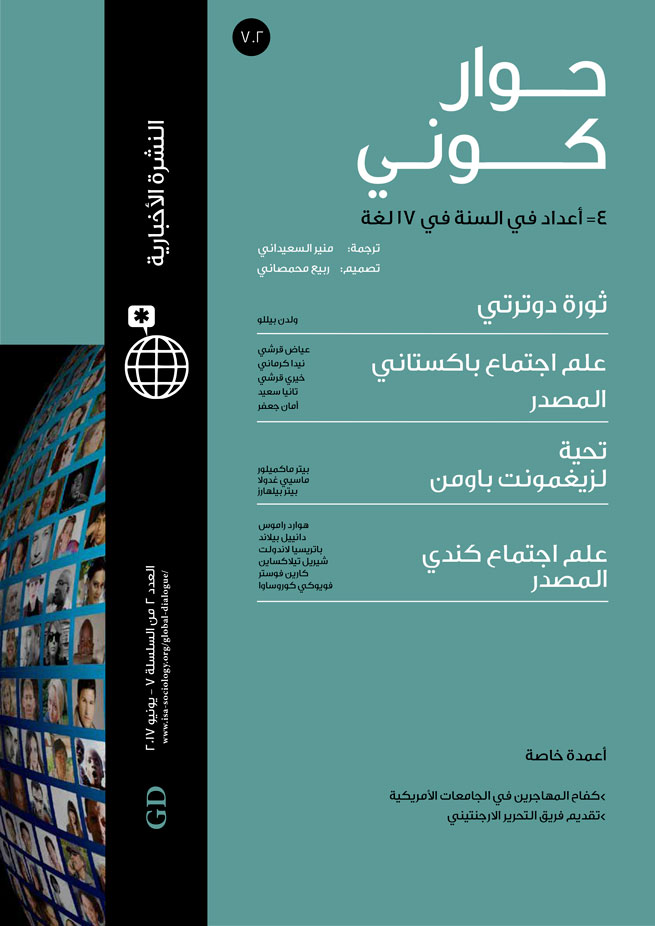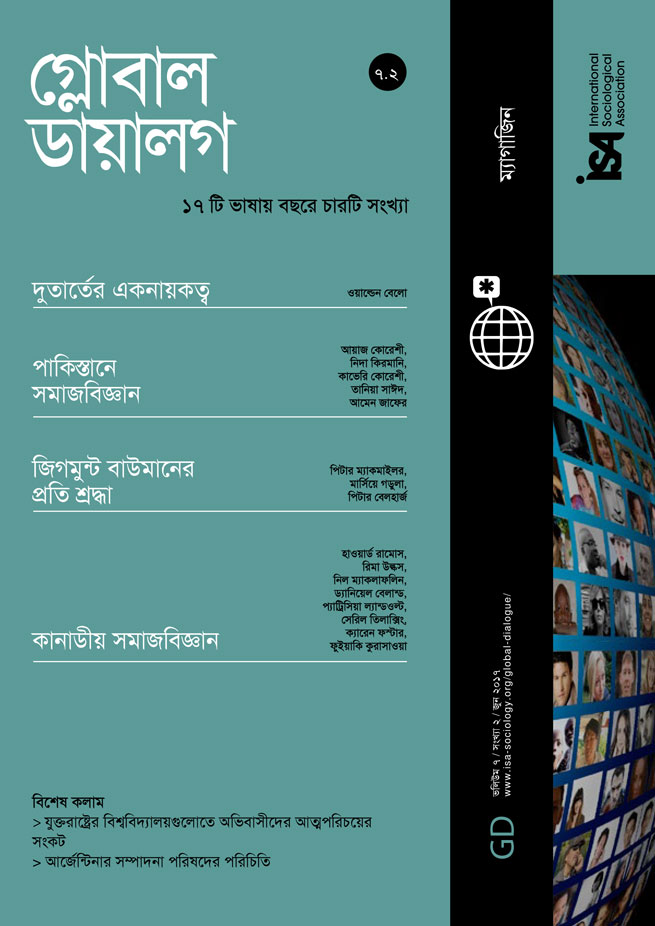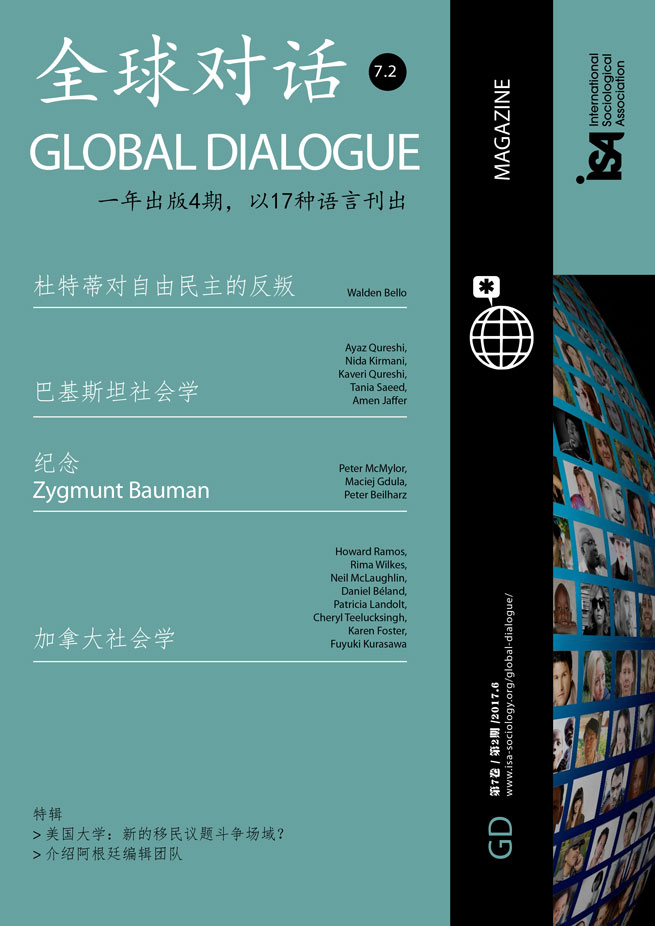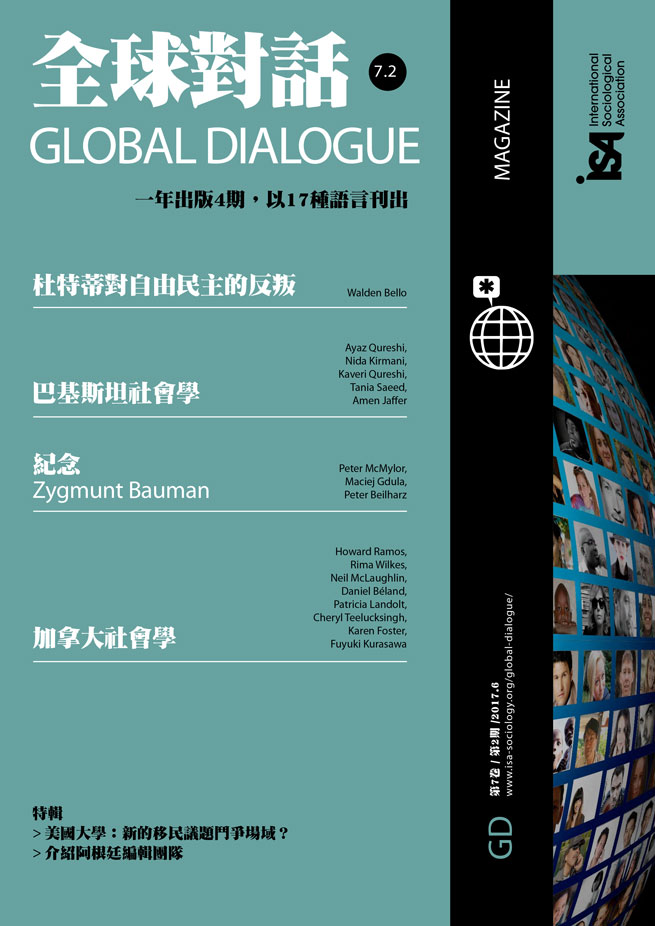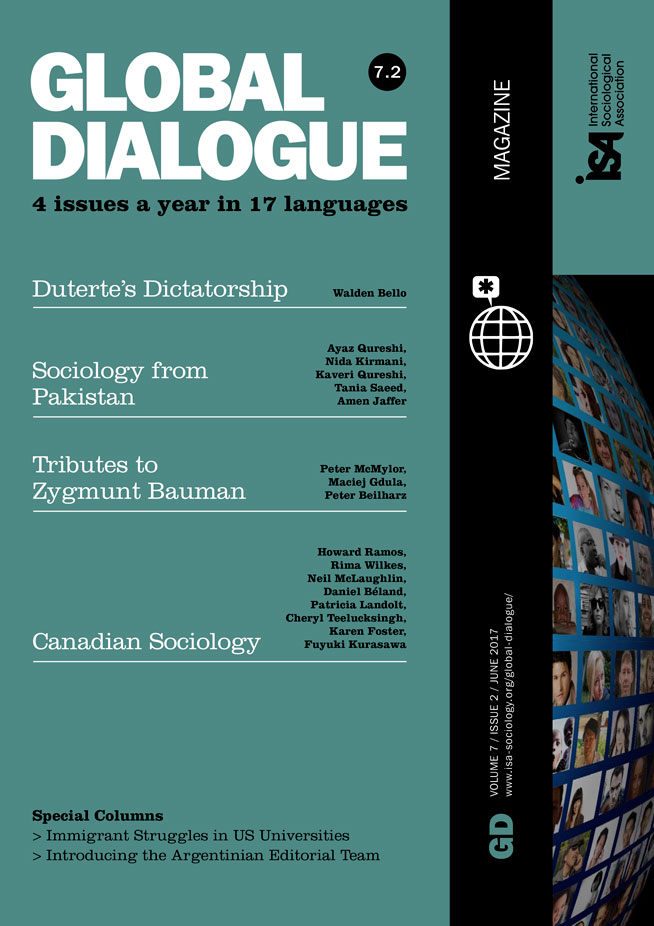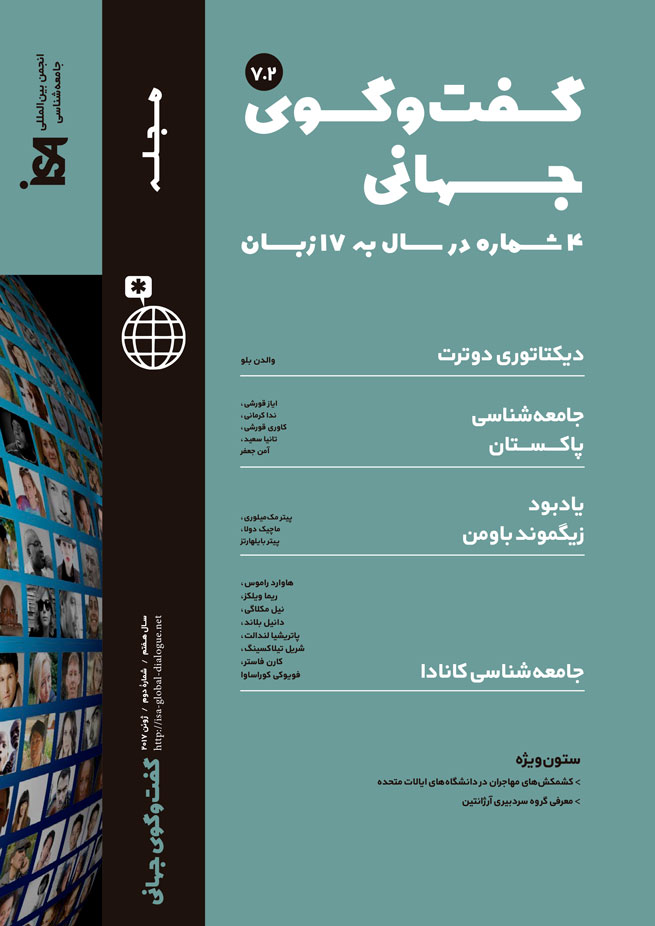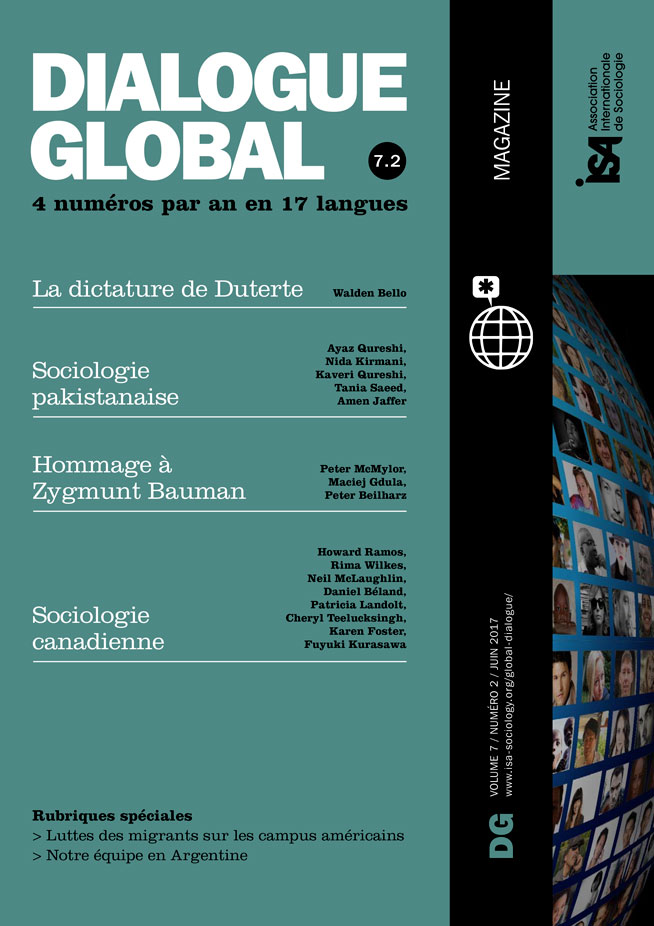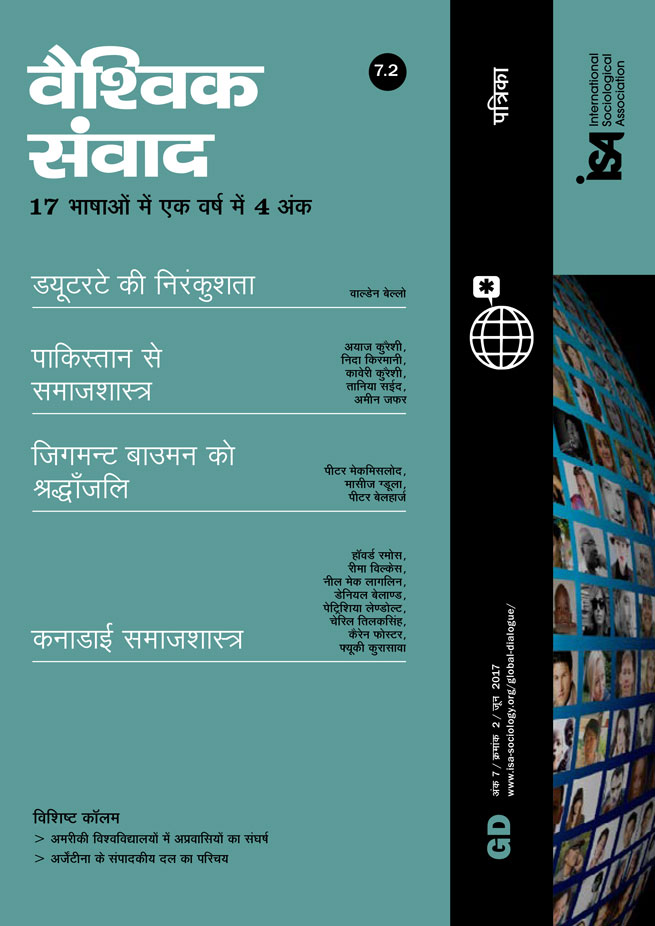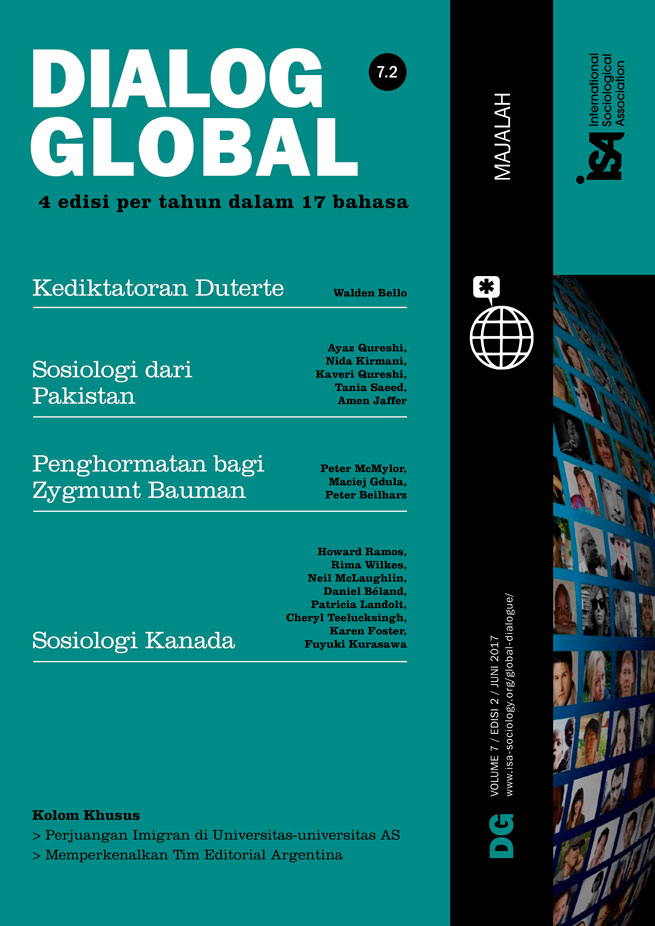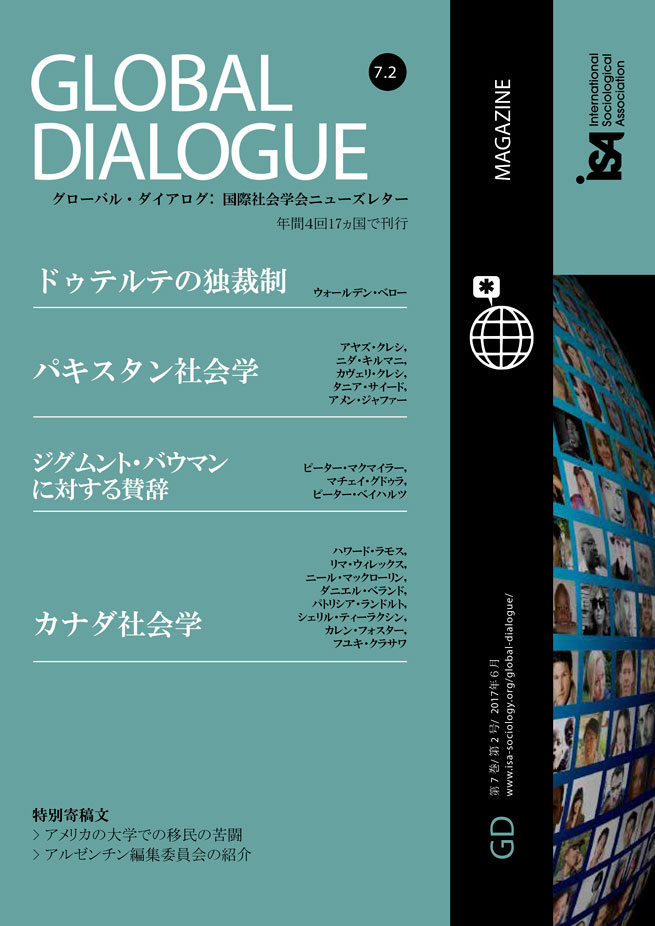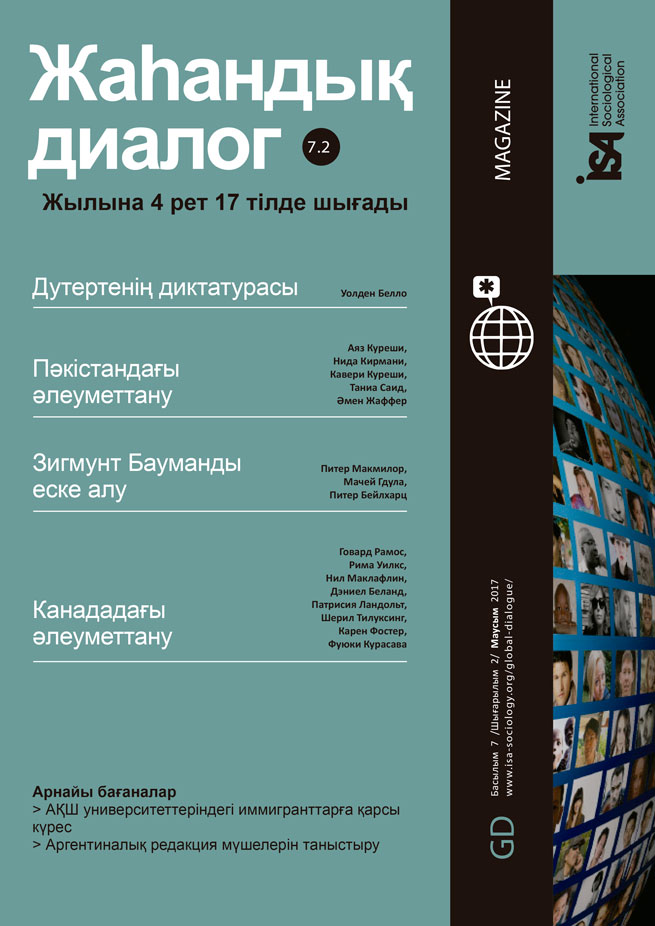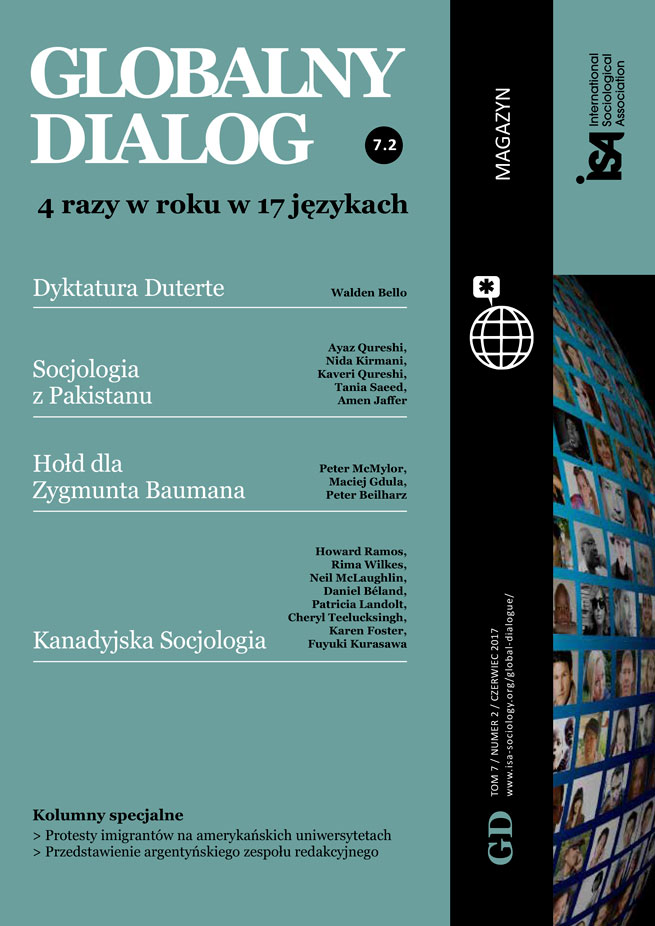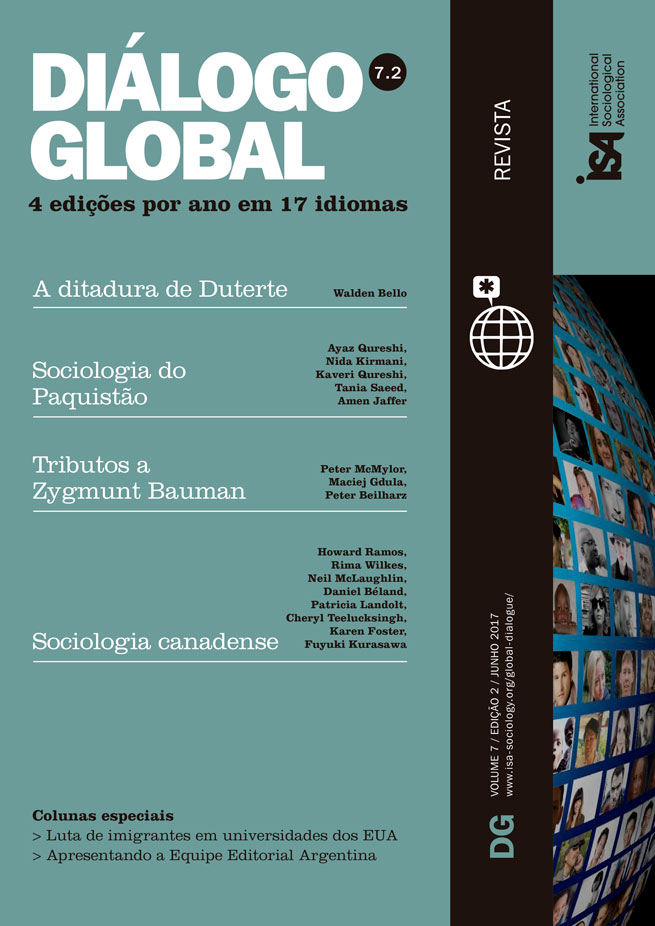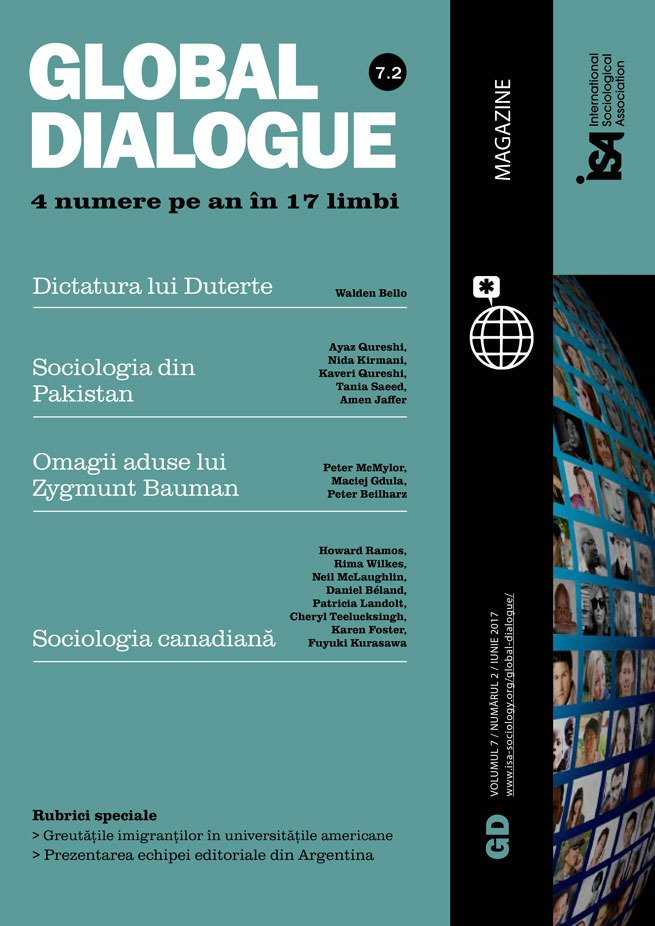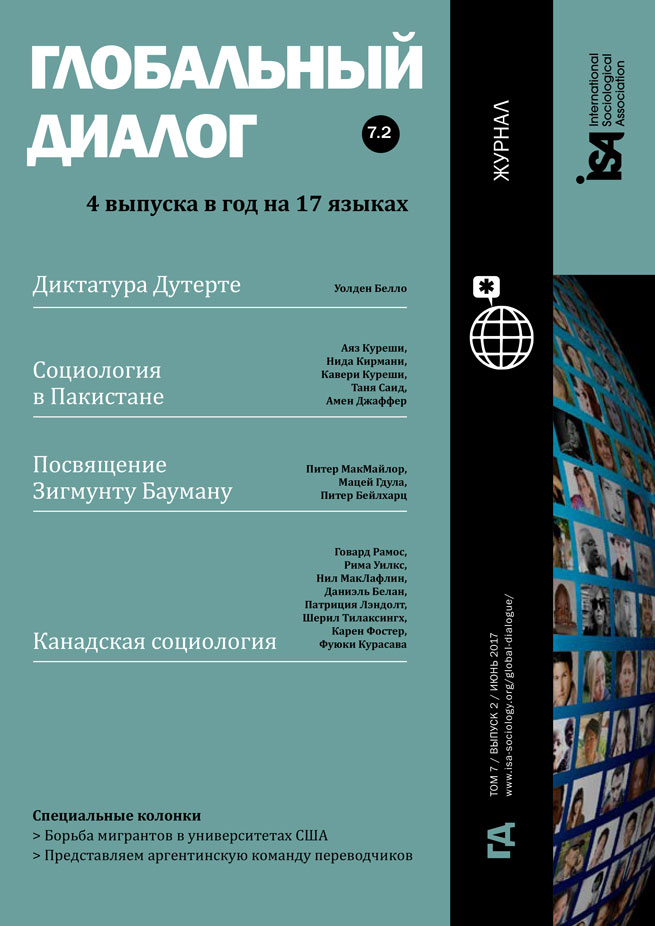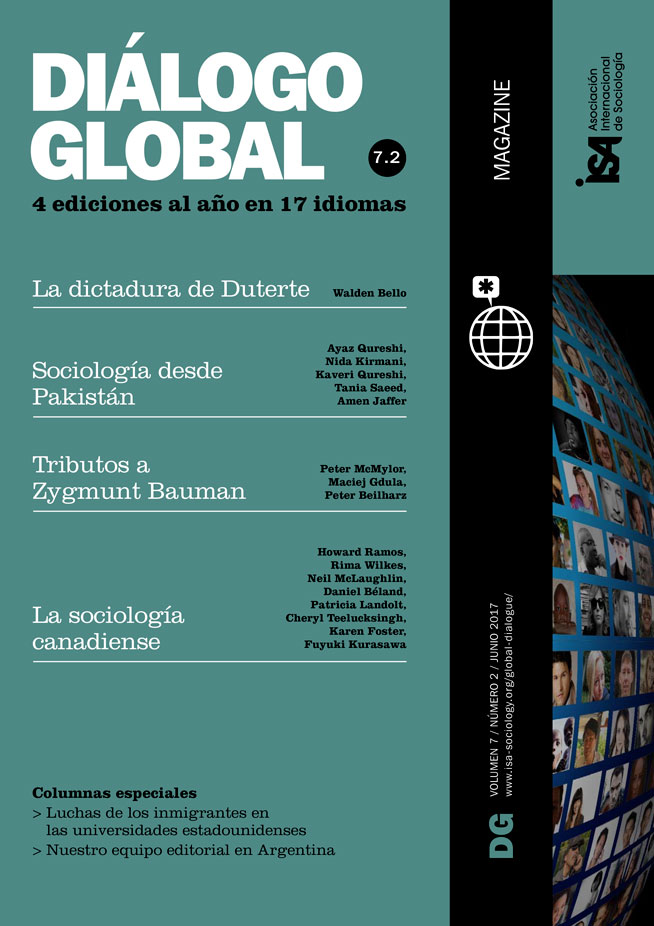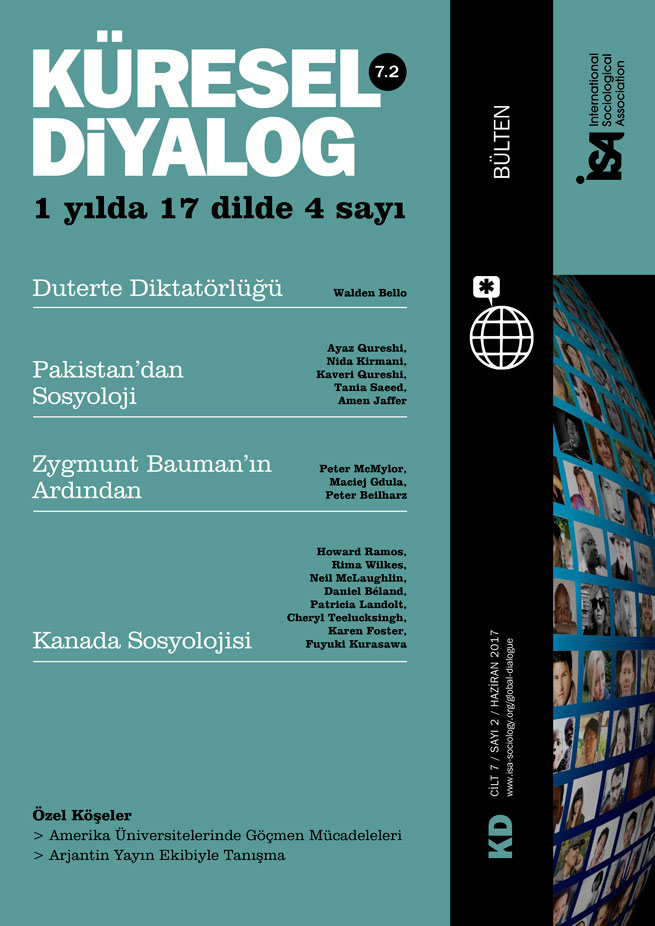Duterte’s Revolt against Liberal Democracy

May 30, 2017
With the victory of the Nazi counterrevolution, Joseph Goebbels famously said, “The year 1789 is hereby erased from history.” Along the same lines, could one argue that the rising fascist movements in the US, Europe, and elsewhere seek to erase 1989 from history?
1789 heralded the French Revolution. Similarly, for Francis Fukayama and others, 1989 marked the apogee of liberal democracy. In what
Fukayama termed “the end of history,” the defeat of communism in Europe and right-wing authoritarian regimes across the developing world marked “an unabashed victory of economic and political liberalism […] and the universalization of Western liberal democracy as the final form of human government.” Fukuyama’s nascent utopia was soon challenged by anti-liberal movements, mainly religious-inspired forces like political Islam in the Middle East and ethnic exclusivist ones in Eastern Europe. But no movement or individual has been more brazenly contemptuous of liberal-democratic ideals than Rodrigo Duterte, elected President of the Philippines in May 2016 by an insurgent electoral movement.
Eliminationism
Duterte’s signature program has been his war on drugs, which after only nine months has claimed nearly 8,000 lives. This is no ordinary law-and-order campaign. Carried out with a fanaticism bordering on the ideological and justified with ideas reminiscent of pseudo-scientific Nazi racial theory, the campaign has stripped a whole sector of society of the rights to life, due process, or membership in society. Duterte has all but written drug users and drug dealers – a group said to comprise three million of the country’s population of 103 million – out of the human race. With a typical rhetorical flourish, he told the security forces: “Crime against humanity? In the first place, I’d like to be frank with you: are they human? What is your definition of a human being?”
Justifying killings “in self-defense” by the police, Duterte insists that using “shabu” – the local term for meth, or methamphetamine hydrochloride – can “shrink the brain of a person, who therefore is no longer viable for rehabilitation”. Calling drug users the “living, walking dead” who are “of no use to society,” he insists they are “paranoid” and dangerous. Duterte has offered police a blank check to kill drug users, whether or not they resist arrest. Indeed, to any policemen who might be convicted of killing drug users without justification, he has offered an immediate pardon “so you can go after the people who brought you to court.”
In spite of, or because of, these views, Duterte – who after all promised during his campaign that he would “fatten the fish” in Manila Bay with bodies of thousands of criminals – remains immensely popular, with approval ratings hovering around 83 per cent, and a fanatical following of netizens, who launch cyber assaults on people who dare criticize his regime’s extra-judicial executions.
The Roots of Dutertismo
What are the roots of Duterte’s mass appeal? True, his identification of drug users as the plague of society resonates widely. But there are more profound causes. Duterte’s hold on society reflects deep disenchantment with the liberal-democratic regime that followed Ferdinand Marcos’ overthrow in February 1986, the so-called EDSA Uprising. In fact, the failure of the “EDSA Republic” – named for the Manila highway where mass protests were mobilized to topple the Marcos dictatorship – was a condition for Duterte’s success.
Duterte’s path was paved by a deadly combination of elite control of the Philippines’ electoral system, continued concentration of wealth, neoliberal economic policies, and Washington’s insistence on foreign debt repayment. By the time of the 2016 elections, a yawning gap had opened between the EDSA Republic’s promise of popular empowerment and wealth redistribution, and Philippine reality: massive poverty, scandalous inequality, and pervasive corruption. Add to this the widespread perception of inept governance during President Benigno Aquino III’s administration, and it is not surprising that more than 16 million voters, some 40 per cent of the electorate, saw the tough-guy, authoritarian approach which Duterte had cultivated for 30-plus years as mayor of the southern frontier city of Davao as precisely what the country needed. As the novelist Anthony Doerr said of pre-war Germans, Filipinos were “desperate for someone who can put things right.”
Moreover, the EDSA Republic’s discourse – democracy, human rights, and rule of law – came to seem a suffocating straitjacket for many Filipinos overwhelmed by a sense of powerlessness. Duterte’s discourse – a mixture of outright death threats, coarse street-corner language, and frenzied railing, combined with disdainful humor directed at an elite he called “coños” or cunts – proved an exhilarating formula for his audience, who felt themselves liberated from stifling hypocrisy.
A Fascist Original
Duterte’s campaign of extermination, his mobilization of a multiclass base, and his concentration of power has left the Philippines’ US-style separation of powers in tatters. These features of his reign mark him as a fascist – but of an unusual kind. If the conventional fascist takeover starts by violating civil liberties, moves to a grab for absolute power, and then to indiscriminate repression, Duterte reverses the order, first ordering wholesale killings, and reducing attacks on civil liberties and a lunge for absolute power before mopping-up operations in a political arena without facing significant opposition. This is blitzkrieg fascism.
Another distinctive feature of Duterte’s approach has been his invitation to traditional left politicians to serve in his administration, a coalition that would have been unimaginable in classical fascist regimes. Rather than treating the left as his implacable enemy, Duterte is confident he can control it; meanwhile, the Communist Party and the National Democratic Front have been only too happy to enter his administration, hoping to reverse years of declining influence.
Though a novice at foreign policy, Duterte has demonstrated an instinctive grasp of the dynamics of Philippine nationalism. Moves like calling former US President Obama a “son of a bitch” – after the then-American president had criticized Duterte’s extra-judicial executions, and his openness towards China – seemed politically risky, given that pro-Americanism has been considered deeply entrenched in the Philippines. Surprisingly, however, Duterte’s moves provoked very little protest, instead eliciting much Internet support. As many have observed, ordinary Filipinos may feel admiration for the US and US institutions, but there is also a strong undercurrent of resentment at US colonial subjugation of the Philippines, at the unequal treaties that Washington has foisted on the country, and at the overwhelming impact of the “American way of life” on local culture. Here, one need not delve into Hegel’s complex master-servant dialectic to understand that the “struggle for recognition” has been an undercurrent in the US-Philippine relationship. Duterte has been able to tap into this emotional underside of Filipinos in a way that the left has not. Like many authoritarian predecessors elsewhere, Duterte has been able to effectively splice together nationalism and authoritarianism.
Populist in Rhetoric, Fascist in Substance
Though much of his rhetoric is populist, however, Duterte makes no pretense that he will use the masses as a battering ram for redistributive reform. Rather, like classic fascists, he seeks to balance class forces while projecting an image of being above class conflict. During his campaign, Duterte promised to end contractual labor, curb the mining industry, and turn over to small coconut farmers the taxes unjustly collected from them by the Marcos regime; but those promises have remained largely unfulfilled while the country’s key elites have positioned themselves as his allies. But while in the long term, delivering social and economic reforms will be central to maintaining support for his authoritarian project, the lack of progress so far seems unlikely to dent Duterte’s popularity in the short or medium term.
For the moment, opposition to Duterte among the elite and state institutions is weak. Similarly, the Catholic Church hierarchy, formerly a strong advocate of human rights, has been hesitant to take on a popular leader; the Church lacks credibility due to internal corruption and to its bull-headed stance on family planning. What opposition there is has come from isolated figures – including Senator Leila de Lima, now jailed on trumped-up charges that she is on drug lords’ payroll; from a section of the media; and from human rights groups like the coalition I-Defend.
Duterte, Philippine Society, and Sociology
Duterte may be politically reprehensible, but his personality and its contradictions have drawn much interest from social scientists. Some have asked about the intersection of socio-historical trends and personality. A recent New York Times profile described how Duterte was greatly affected when a Jesuit priest sexually molested him in high school — a revelation that Duterte himself raised during the 2016 election campaign. Later transferred to Los Angeles, the offending priest went on to sexually abuse children, with no effort on the part of his superiors to discipline him or turn him over to the law (though the Jesuits were finally forced to pay a $16 million settlement with the victims). Given the psychological damage that is likely to have been inflicted, is the Philippines now paying for the crimes of a child predator?
Sociologists might also ask, in philosopher John Gray’s words, how “what we see as the unalterable features of civilized life vanish in the blink of an eye.” Especially after the 1986 EDSA Uprising, the Philippines was regarded as a showcase of liberal democracy. Many argued that in overthrowing Marcos, Filipinos reasserted longstanding values they had internalized during the American colonial period, of individual rights, due process, and democracy. The liberal-democratic constitution of the EDSA Republic seemed to crystalize these national political values. But suddenly, in the space of less than a year, most Filipinos express strong support for a man whose central agenda is the extra-judicial execution of a certain category of human beings; many have served as Duterte’s “willing executioners,” to borrow Daniel Goldhagen’s description of Germans during the Nazi era, or at least as his “willing accomplices.” To some, seeing many compatriots cheering Duterte on in his bloody campaign is inexplicable as well as tragic. To others engaged in the behavioral sciences, however, it seems time to shed the assumptions that our people are civilized beings or creatures with compassion; instead perhaps we must approach contemporary Philippine society with the same lens that Goldhagen proposed for studying Germany during the Nazi period:
[T]his period can be approached […] with the critical eye of an anthropologist disembarking on unknown shores, open to meeting a radically different culture and conscious of the possibility that he might need to devise explanations not in keeping with, perhaps even contravening his own common-sense notions, in order to explain the culture’s constitution, its idiosyncratic patterns of practice, and its collective projects and products. This would admit the possibility that large numbers of people […] might have killed or been willing to kill others […] in good conscience.
Comparative Genocide
Meantime, the body count continues to mount. Duterte’s war on drugs has already claimed more victims than most genocidal campaigns in Southeast Asia’s recent history, behind only Pol Pot’s extermination of nearly 3 million Cambodians in the 1970s, and the 1965 massacre of nearly a million Indonesians following a failed coup against the Sukarno government. Recently, Duterte told the country, with characteristically sinister humor, that 20,000 to 30,000 more lives might have to be taken to cleanse the country of drugs. Having learned to take Duterte seriously even when he seems to be joking, many observers expect this figure to be an underestimate.
Walden Bello, State University of New York, Binghamton and former member of the Philippine House of Representatives <waldenbello@yahoo.com>

